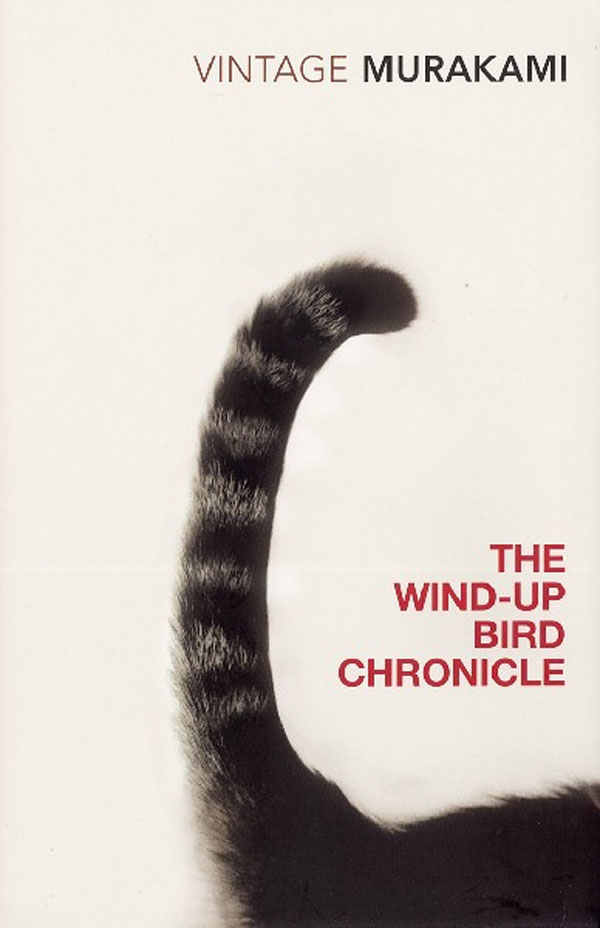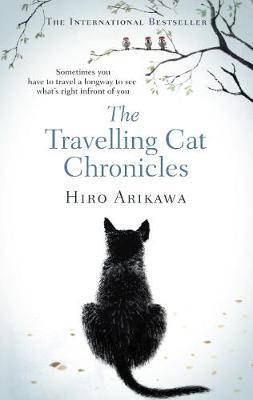Four Japanese Books for the Soul of Istanbul
By Luke Frostick
Pictured: not Istnabul
Istanbul can be a stressful place to live. You have to deal with traffic, pollution, humidity, long working hours, traffic, a failing economy, authoritarian backsliding, that little voice in the back of your head that says ‘no matter how many millions of people surround you in your every single waking moment, you are ultimately alone’, and traffic.
For me, when the rigours of this city become too much to bear, I find comfort in Japanese literature. The gentle prose and careful structure of Japanese master novelists can make even the most sweaty of metrobus rides seem tranquil.
There is, however, something that binds Japan and Turkey together (beyond the sinking of the Ertuğrul) and that is the profound respect that both cultures have for cats. Be it it the tough street moggies of Tarlabasi or the primped and preened pure-breds of Omotesando, cats have a special place in the heart for Turks and the Japanese alike. So it is with this in mind that I present to you four Japanese books for the soul of Istanbul.
1) The Wind-Up Bird Chronicle, Haruki Murakami
Istanbul problem: What do you do if your cat goes missing?
It wouldn’t be a list of Japanese novels without the crown prince of Japanese literature.
In classic Murakami style, Toru Okada is a man trying to live a quiet life of jazz, good food and literature with his wife Kumiko. However, when his cat goes missing, he finds himself on the clock, as the longer the cat is gone the further Kumiko slips away from him both emotionally and physically. To retrieve his cat and his wife, Toru is dragged into a sequence of strange adventures. He is forced out of his comfort zone by mediums, dark secrets from WWII and teenage girls. Each twist and turn of the story drags Toru and the reader away from the normal into the surreal and it is a thing of beauty to follow.
If you’ve been passing Murakami by because his omnipresence feels tedious, don’t. He is filling up the M section of every book shop for a reason.
Japanese literature tends to feature spare, simple prose that hide their beauty and Murakami is a master. He uses that simplicity to construct haunting stories and compelling worlds that you will want to spend more time in even after the book is long finished.
Murakami has a vast back catalog and I seriously considered having another of his books Kafka on The Shore as my entry for Istanbul’s soul. After all, it does feature a man who can talk to cats and is probably my favourite Murakami book (depending on what day you ask me). However, putting aside the fact that cat communication is a power that is already quite common place in Istanbul, I believe The WindUp Bird Chronicle is closer to the soul of Istanbul. I came to this after asking myself, ‘like Toru, would most Istanbullu go on metaphysical quests to be reunited with their lost cats?’ Yes, yes they would.
2) The Traveling Cat Chronicles, Hiro Arikawa
Istnabul problem: You are going away on a journey. Who do you trust to look after your cat while you’re gone?
Any Japanophiles reading this article are going to notice a glaring omission. This list does not include I am a Cat by the legendary Natsumi Soseki. This is because, full disclosure, I haven’t read it. However, I have read a spiritual successor, The Traveling Cat Chronicles by Hiro Arikawa and think it is more than worthy of a place on this list.
Like Soseki’s classic, the story is told from the perspective of a cat. This time named Nana. Nana tells us all about his owner Satoru, how they met, how they became friends and how they came to live together as they travel round Japan meeting with Satoru’s old school friends. The reason for his trip is, ostensibly, so one of them can take care of his cat, while he goes away on an unspecified journey. The purpose of Satoru’s journey, his and Nana’s backstory are all slowly dripped to the reader via the conversations he has with his friends and Nana’s commentary. The plot is straight forward but powerful. It runs dangerously close to being over-sentimental, but it never quite gets there and Nana’s practical, animal logic makes the emotional impact of the story somehow more powerful.
Nana makes a very dignified, polite narrator that wouldn’t feel out of place in a BBC documentary. Anybody who has ever owned a cat has, at some point or another, gazed into their eyes and thought, “God, they must think I’m a complete buffoon.” Nana brings those sentiments and more, which are universal to cat owners, to life.
This really is a book for animal lovers of all stripes. Nana is great companion and if cats could talk, the would probably sound like him.
If only we as a species were slightly better attuned to nature, I’m quite convinced we’d be able to listen into our own cat’s dry commentary. Until then, the The Traveling Cat Chronicles will have to be enough.
3) A Cat, a Man, and Two Women, Junichiro Tanizaki
Istanbul problems: You have just divorced from your wife. Who keeps the cat? Or maybe you are worried that your husband loves the cat more than you. Or You are worried that your husband’s ex-wife is trying to get hold of said cat in attempt to rekindle past romance. How to resolve all these problems at once?
Shozo is an easy-going kind of guy. Well, possibly just a bit of a lazy arse who would much rather spend his time feeding his cat Lily than spend time getting a job or attending to his new wife. However, he is forced to reengage with the world when his new wife Fukuko (not a cat lover) gives Lily to his ex-wife Shinako. Confused yet? Well it gets worse. Shinako is planning to use the cat to lure Shozo back to her. This is predicted by Shozo’s mother who sets her own schemes in motion to keep Shinako out of the house and mitigate the impact of the cat leaving Shozo’s life. That is literally the simplest synopsis of the plot that I could manage. Given that this is a short story, it might seem like too much is being crammed into a sparse page count. However, that is kind of the fun of the story; watching these convoluted plots get mixed up with each other and the ever graceful Lily rising above it all with aristocratic indifference.
There is a lot in this book for a cat lover. The way Lily moves, acts and reacts to situations , and although we don’t hear her voice, we have a great sense of her character. Furthermore, watching Shinako -who at the start is just using Lily- grow to love her is a feeling that I’m sure all of us can relate with.
Tanizaki is a humorous writer who loves delving into the absurd. He has a sneaky kind of wit that creeps up on you and leaves you wondering if the butt of his jokes are the characters, the writer himself or you.
4) The Guest Cat, Takashi Hiraide,
Istanbul problem: You have fallen in love with a cat, but it belongs to your neighbours.
Takashi Hiraide’s novella is as simple a story as they come. Lost in his thirties, the narrator tells us of how he and his wife learn to let the neighbour’s cat into their lives (or perhaps it might be the other way round). We watch their relationship with Chibi the cat evolve, from stranger to annoyance, to friend and to an inseparable part of their lives. At the same time, they are very aware that Chibi isn’t theirs and never will be, or is the neighbour to whom Chibi doesn’t belong, or neither? In that simplicity, utilising the most sparing, beautiful prose, Hiraide is able to create something profound.
All the books that I have listed above are about, to one degree or another, the relationship between humans and animals. However, without seeming to try, Hiraide is the one that gets closest to the deep, monkey-brain reasons that we chose to share our lives with pets and with cats in particular. Like Tanizaki, Hiraide has a great eye for the movement of cats. Lily is a very different cat to Chibi, but both writers use the unique motions and habits of their respective cats to personify them and make them instantly believable. In other words, without ever saying a word, both cats feel as well-rounded as any of the human characters.
The Guest Cat is a book that I love. It’s one of those rare ones that without thinking, I can finish, turn over and start reading all over again.
Japan produces some of my favourite literature in the world. When the world starts getting me down, I pull out a Murakami or a Tanizaki and drift off to the painfully cool bars of Tokyo or the tranquil gardens of Kansai, and read about little furry friends. That is sometimes enough to make me forget all about Turkey’s problems and the chunky amca next to me whose flesh is attempting to annex parts of my metro seat.
*
You can find The Guest Cat here, A Cat, A man and Two Women here, The Traveling Cat Chronicles here and the works of Murakami in literally any book shop in the world.
*
Next:





